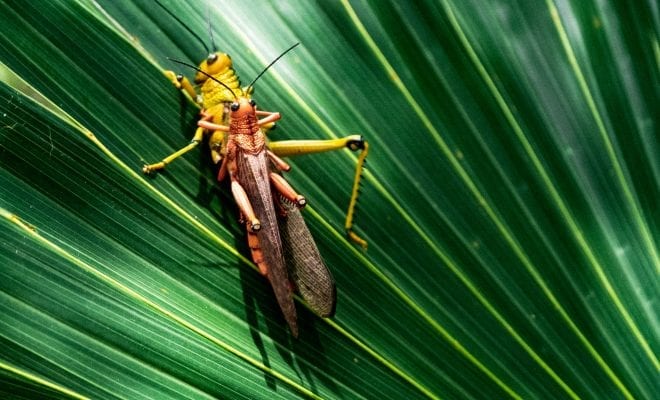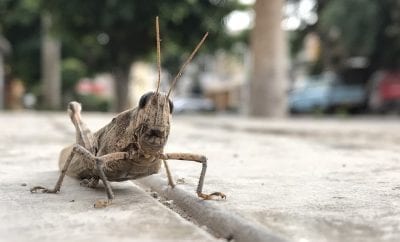
News
Scientists Warn an “Insect Apocalypse” Could Soon Happen
There are an estimated 10 quintillion (that’s 10 followed by 18 zeros) bugs doing their thing around the world right now. For every person, there are approximately 1.4 billion bugs and they play a major role in our ecosystem. If a cataclysmic event caused their downfall, it will be us who deals with the severe consequences.
A new report published in Science Direct has issued a looming warning that if we do not do more to reign the continued pollution, global warming, and habitat destruction happening around our planet, an insect apocalypse is likely to occur. Insects play a major role in cleaning up waste products, directly or indirectly pollinating plants, fertilizing plant life, providing new medicine, and form a crucial foundation of the food chain. In a world without bugs, entire ecosystems could collapse.

“Each species represents an unrepeatable part of the history of life,” the group of researchers explained within the report. “In turn, each species also interacts with others and their environment in distinctive ways, weaving a complex network that sustains other species, including us.”
“The issue is that the human brain is not well equipped to assimilate and act upon perceived unseen and abstract themes such as insect conservation, which are nebulous and seemingly not relevant to everyday life,” they wrote in the combined paper.
To prevent this from happening, researchers are suggesting a new approach that hopes to change the way we think and view the insects of our world. This includes utilizing media coverage to popularize insects and developing stronger education within schools and the public.
Insect conservationists are also exploring new ways to better communicate with major decision makers including ecologists, developers, farmers, and land managers. By choosing to act now, we are securing the conservation of a rich and complex part of our planet’s biodiversity that is vital to the well-being of our future.



0 comments